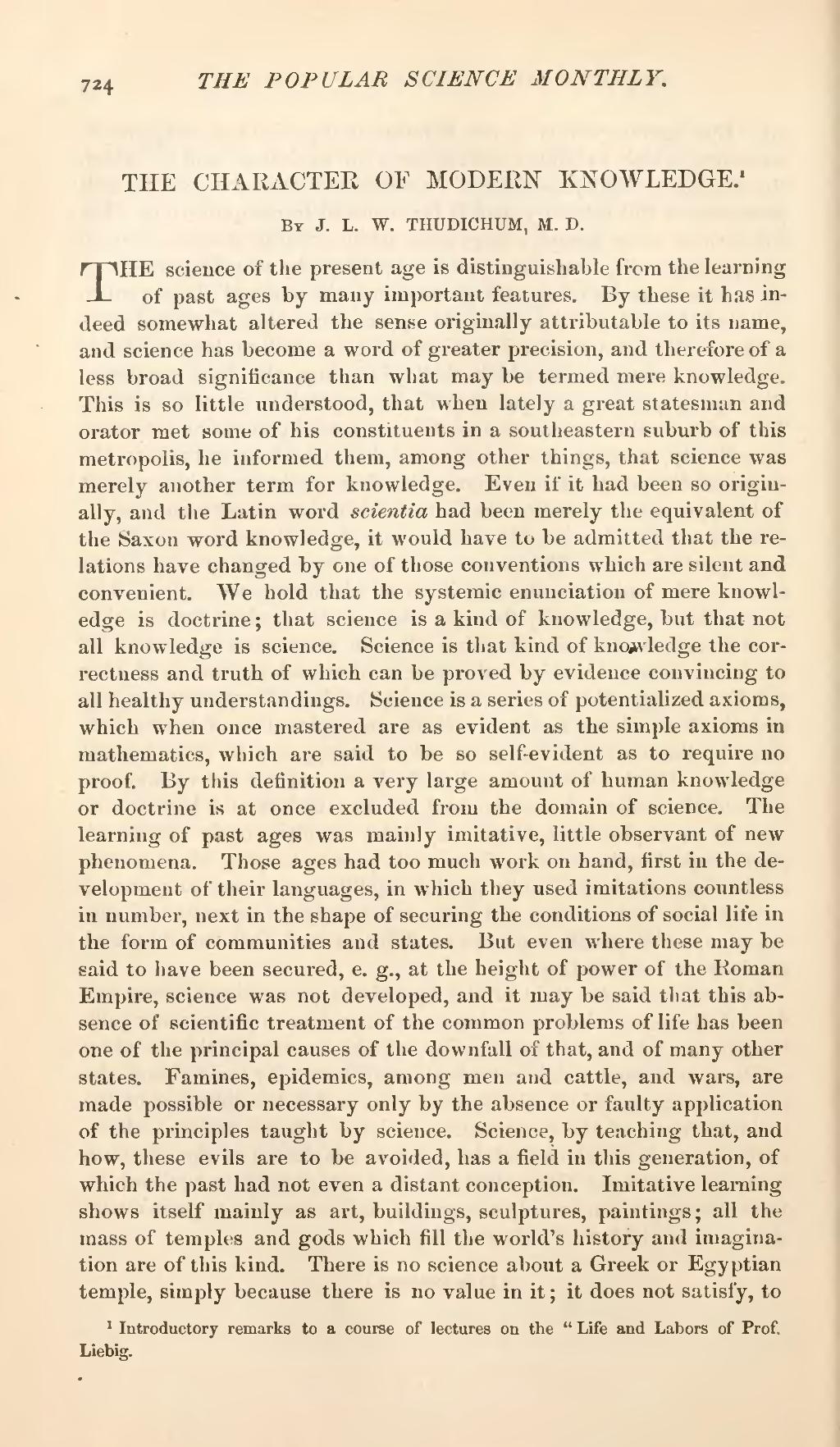| THE CHARACTER OF MODERN KNOWLEDGE.[1] |
By J. L. W. THUDICHUM, M. D.
THE science of the present age is distinguishable from the learning of past ages by many important features. By these it has indeed somewhat altered the sense originally attributable to its name, and science has become a word of greater precision, and therefore of a less broad significance than what may be termed mere knowledge. This is so little understood, that when lately a great statesman and orator met some of his constituents in a southeastern suburb of this metropolis, he informed them, among other things, that science was merely another term for knowledge. Even if it had been so originally, and the Latin word scientia had been merely the equivalent of the Saxon word knowledge, it would have to be admitted that the relations have changed by one of those conventions which are silent and convenient. We hold that the systemic enunciation of mere knowledge is doctrine; that science is a kind of knowledge, but that not all knowledge is science. Science is that kind of knowledge the correctness and truth of which can be proved by evidence convincing to all healthy understandings. Science is a series of potentialized axioms, which when once mastered are as evident as the simple axioms in mathematics, which are said to be so self-evident as to require no proof. By this definition a very large amount of human knowledge or doctrine is at once excluded from the domain of science. The learning of past ages was mainly imitative, little observant of new phenomena. Those ages had too much work on hand, first in the development of their languages, in which they used imitations countless in number, next in the shape of securing the conditions of social life in the form of communities and states. But even where these may be said to have been secured, e. g., at the height of power of the Roman Empire, science was not developed, and it may be said that this absence of scientific treatment of the common problems of life has been one of the principal causes of the downfall of that, and of many other states. Famines, epidemics, among men and cattle, and wars, are made possible or necessary only by the absence or faulty application of the principles taught by science. Science, by teaching that, and how, these evils are to be avoided, has a field in this generation, of which the past had not even a distant conception. Imitative learning shows itself mainly as art, buildings, sculptures, paintings; all the mass of temples and gods which fill the world's history and imagination are of this kind. There is no science about a Greek or Egyptian temple, simply because there is no value in it; it does not satisfy, to
- ↑ Introductory remarks to a course of lectures on the "Life and Labors of Prof. Liebig.

